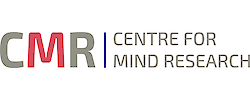Obsessive-Compulsive Disorder
We are still looking for participants for an online survey on the care situation and help-seeking behavior of people with OCD: https://www.soscisurvey.de/ocdstudy/ (in german)
What is obsessive compulsive disorder?
Obsessive compulsive disorder is characterized by recurring coercive thoughts and/or coercive actions. Coercive thoughts mean intrusive ideas, thoughts or images that are experienced by those affected as unpleasant or frightening. Common examples are thought to have come into contact with pathogens, to harm others through their own carelessness, or to thoughts related to religious or sexual content. Coercive acts are recurring and often perceived as pointless or exaggerated acts, to which the person concerned (e.g. due to a forced thought) feels crowded. Frequent coercive actions are excessive washing rituals, excessive controls, regulatory constraints, counting constraints and collection constraints. As a rule, those concerned are aware of the absurdity of their behavior. However, they do not manage to change the coercive behavior which is associated with a considerable amount of time and/or or a heavy burden.
How is obsessive compulsive disorder created?
Various causes contribute to the emergence of obsessive compulsive disorder. It seems verified that both neurobiological and learning and life-historical experiences play a decisive role. The exact interaction of the discussed factors is the subject of intensive scientific research.
Neurobiological model Ideas
The results of neurobiological research on obsessive compulsive disorder speak for the involvement of genetic factors, brain functional changes and a disturbed balance of important messenger substances in the brain:
Studies show that relatives of affected individuals have an increased risk of developing obsessive compulsive disorder themselves. This result is interpreted as a reference to a genetic involvement. It is certain that obsessive compulsive disorder is not directly inherited, but only a risk. It is likely that several genes that have not been clearly identified yet are involved in the emergence of obsessive compulsive disorder.
In modern investigations into abnormalities of the brain functions, a disturbed activation of the anterior brain and deeper areas in the case of OCD patients was reported. These are brain centers that play an important role in the execution and control of the action and the control of thoughts. In particular, the orbitofrontal cortex appears to be overactive in persons with obsessive compulsive disorder. This is regarded as a possible basis for the uncontrollably experienced coercive thoughts and the hard-to-break coercive acts. Interestingly, the brain activation is normalized by a successful treatment with medication or by behavioral therapy.
In the brain, information between the nerve cells is passed on through messenger substances. Due to a malfunction in the messenger system, a disturbed information line can be compensated for by medication. The efficacy of drugs in the class of selective serotonin reuptake inhibitors (SSRIs), which has been clearly proven in numerous studies, indicates a role of the messenger serotonin in the onset of obsessive compulsive disorder. However, other messenger substances such as dopamine and glutamate are likely to be involved in the emergence of obsessive compulsive disorder.
Psychological explanation model of obsessive compulsive disorder
According to the psychological model, people with obsessive-compulsive disorder attribute too much importance to intrusive and unpleasant thoughts. While healthy persons are not further influenced by such "disturbances" in their flow of thought, a sticking to such thoughts is reported by OCD patients. By evaluating the thoughts as dangerously, these strong fears and tensions trigger. Coercive acts are used to reduce this experienced anxiety and tension and to create a sense of safety or correctness. The calming achieved thereby increases the likelihood of the forced behaviour to be shown again later, the obsessive-compulsive disorder solidifies.
What does the treatment of obsessive compulsive disorder look like?
According to the current state of research, a combination treatment consisting of drug and behavioural therapy for obsessive compulsive disorder appears to be the most promising.
Frequently proven medications for the treatment of obsessive compulsive disorder are the so-called serotonin reuptake inhibitors (SSRIs) and the tricyclic antidepressant clomipramine. In some cases, the effect of these medications can be increased by the addition of more well-coordinated medications. The medications approved for the treatment of obsessive compulsive disorder do cause dependencies and do not limit performance.
In a structured, multimodal behavioral therapy, individuals learn to tackle their obsessions and coercive actions and gain control of their behavior. For this purpose, individual confrontation exercises are planned and carried out, in which a non compulsive behaviour can be practised. The hospital and outpatient clinic for psychiatry and psychotherapy at the University of Bonn offers two therapy groups specially tailored to obsessive-compulsive diseases. The outpatient therapy program includes 25 group sessions.
In the soon-to-start group there are still places vacant!
A special offer of our clinic is a regular event for relatives and helpers of affected persons. During the open meeting, we provide basic knowledge and recommendations for dealing with those affected. There is plenty of room for your own questions and personal examples. The participation is free of charge. If you are interested in this offer, please do not hesitate to contact us.
What does the treatment look like?
If you are interested in our treatment offer, you can contact Mrs. M.Sc. Katharina Bey (+49 228 287-16859) by phone. You can reach our Psychiatric institute ambulance at the number +49 228 287-15732.
Further information about our special outpatient clinic for obsessive compulsive disorders can be found in our flyer.
see Flyer
.
For more in-depth information and valuable resources on OCD, visit the OCD Land website (ger): ocdland.com















